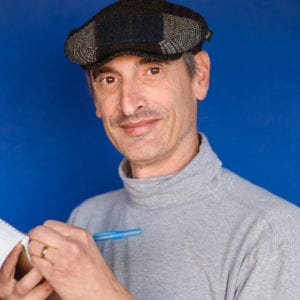Human Resources
Lee Chottiner
As a kid growing up in Pittsburgh, what I knew of Rabbi Dr. Abraham Twerski came exclusively from the 6 o’clock news.
I knew he was a doctor, a rabbi and, of course, a Jew. I also knew that he helped many people, including sports celebrities (especially sports celebrities) battle drug and alcohol addiction.
What sticks in my memory was an interview he once gave to a local TV station about one of his most famous patients, former Cleveland Indians pitching ace “Sudden” Sam McDowell. Sam McDowell! Being treated by this Orthodox rabbi-physician for addiction? I was enthralled by the interview. (The fact that he pitched for the Tribe and not the Pirates, I conveniently overlooked.)
The rabbi-physician described in detail the control McDowell had over his fastballs and curves over the years, but not his illness.
Twerski came into my life on and off over the years. He would sometimes call me at The Jewish Chronicle, where I was the executive editor, pitching his latest book for review, which I usually did. After all, he had a built-in audience in the Burgh. Why wouldn’t I review them?
I attended some of his lectures. After I married Beth, and she became the rabbi in Wheeling, West Virginia, she invited him to speak there, and he graciously accepted, speaking at a Catholic-affiliated hospital to a largely non-Jewish audience.
I was always impressed by the ease with which he moved from the Orthodox to progressive Jewish circles and to the non-Jewish world. It didn’t matter with whom he spoke as long as he was speaking the truth.
My most vivid memory of Twerski, who died from COVID on Jan. 31, was a talk he once gave at the Squirrel Hill Bookstore, in the heart of Pittsburgh’s Jewish neighborhood, about his then-latest title, The Shame Borne in Silence, an honest look at domestic violence in the Orthodox community.
He opened his talk by describing in detail how much he loved to write, which was true. (He wrote some 60 books over his lifetime.)
“But this one I didn’t enjoy writing,” he said. I could see the pain on his face.
Why would he enjoy writing about this subject? He was shedding light on an issue that many people in the Orthodox and non-Orthodox worlds did not want illuminated. Many Judaica stores refused to carry Twerski’s book on domestic violence. In some cases, his public appearances required police protection, underscoring the disdain he faced for writing on a “taboo” topic.
As Rabbi Tzvi Hersh Weinreb, former executive vice president of the Orthodox Union, later told JTA, “To this day, he (Twerski) is defamed in certain circles because he dares to speak about it.”
Twerski was nothing, if not a man of conviction. He spoke the truth, even when he knew it wasn’t popular. He understood that the Jewish community was not immune from the social ails that existed in non-Jewish circles. He did not hide from such issues; he faced them head-on. He understood better than most that meaningful change doesn’t come to a community simply by accentuating its positive attributes. Sometimes, you must face its secrets, too.
I respected him for his courage, as do many Jews, some of whom are still living in the shadows where this fine rabbi and physician dared to shed some light. It’s a never-ending struggle, but he didn’t desist from doing his share of the work.
Want to honor the memory of Abraham Twerski? Speak the truth, even when it’s hard, even if you risk losing friends. In the end, your legacy will be intact, and your community will be better for the effort. Take it from Twerski.
(Lee Chottiner is the editor of the Jewish Louisville Community.)



